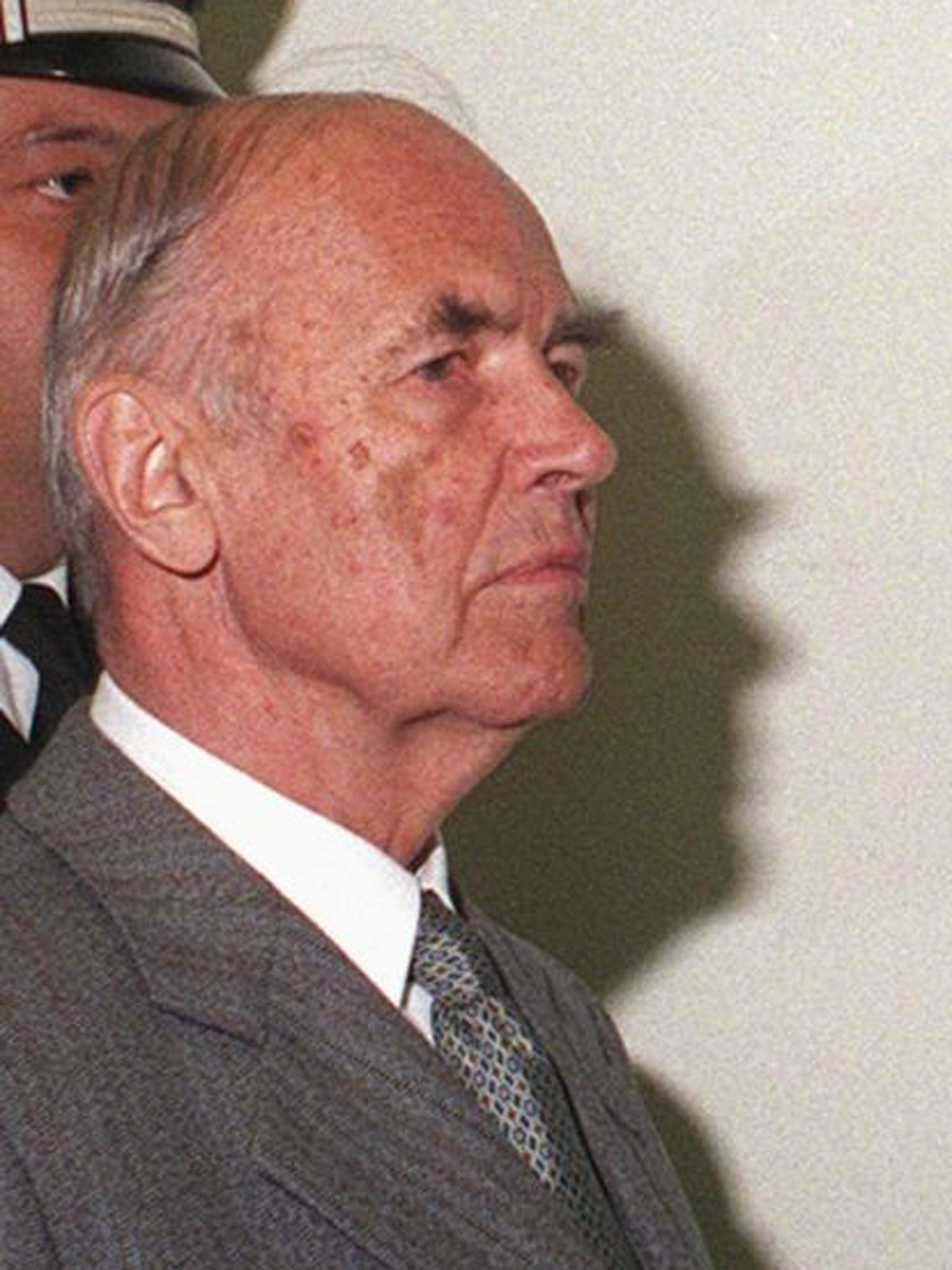Argentina turns away body of Nazi war criminal Erich Priebke
Foreign Ministry says 'Argentines will not accept this kind of affront to human dignity'

Argentina has refused to accept the body of Erich Priebke, the convicted Nazi war criminal who died in Italy on Friday aged 100.
The former Nazi SS captain was extradited to Italy from Argentina in 1995 after evading arrest for nearly 50 years. In 1944 he took part in one of the worst atrocities by German occupiers in Italy during World War II. The massacre of 335 civilians at the Argentine Caves outside Rome was carried out in retaliation to an attack by resistance fighters that killed 33 members of a Nazi military police unit the day before.
An Italian official had said that Priebke's body was to be buried next to that of his wife in Argentina, but this was rejected by the office of the Foreign Minister Hector Timerman.
“Foreign Minister Hector Timerman has given the order not to accept the slightest move to allow the return of the body of Nazi criminal Erich Priebke to our country,” the foreign ministry said, adding: “Argentines will not accept this kind of affront to human dignity.”
The move was welcomed by two Jewish organisations, the Israelite Argentine Mutual Aid Association (Amia) and the Delegation of Argentine Jewish Associations (Daia). Argentina has the largest Jewish community in Latin America, consisting of some 300,000 members.
The Daia said the fact that Priebke had “resided with impunity for decades in our country, enjoying a life that so many civilians had been deprived of” was “an affront to the principles of the Republic”.
Priebke served his life sentence under house arrest at the Rome home of his lawyer, Paolo Giachini.
Giachini announced the former captain’s death and released a final interview with Priebke in July in which he denied that Nazis gassed Jews during the Holocaust and accused the West of having fabricated the crimes to minimize the Allies' own abuses during the war.
Efraim Zuroff, the historian who has played a key role in bringing Nazis indicted for war crimes to trial, said Priebke's case proves it is never too late to seek justice.
“Priebke's death at the age of 100 should be a powerful reminder that some of the worst perpetrators of the crimes of the Holocaust live to a healthy old age and that a person's chronological age should never prevent them from being held accountable for their crimes, if they are healthy enough to be brought to justice,” he said in a telephone interview from Jerusalem. “Priebke was a classic example of a totally unrepentant Nazi war criminal.”
Join our commenting forum
Join thought-provoking conversations, follow other Independent readers and see their replies
Comments
Bookmark popover
Removed from bookmarks